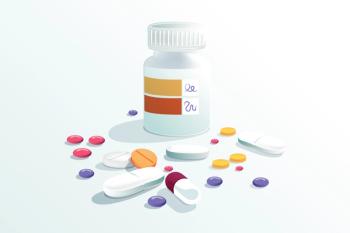
- MHE July 2023
- Volume 33
- Issue 7
4 Important Approvals Expected This Year
The approval of Mounjaro (tirzepatide) for weight loss could be a tipping point for weight-loss drugs.
The FDA approved 22 new drugs during the first half of 2023, including notable newcomers Inpefa (sotagliflozin) for heart failure, Miebo (perfluorohexyloctane) for dry eye disease and Veozah (fezolinetant) for hot flashes associated with menopause. At this pace, the number of new drugs approved this year will surpass last year’s total of 37 but perhaps fall short of the 52 approved in 2021. The new drug tally does not include vaccine approvals. The agency has approved two vaccines against respiratory syncytial virus (RSV) so far this year — Arexvy and Abrysvo — and a third is likely.
1. Leqembi for Alzheimer’s disease
Japanese drugmaker Eisai Co., Ltd., and Biogen Inc., based in Cambridge, Massachusetts, had some muddy waters to navigate. However, in January 2023, the FDA granted accelerated approval of their Alzheimer’s disease drug, Leqembi (lecanemab), and a full “traditional” approval is in the offing.
Leqembi works by clearing amyloid-beta aggregates from the brain, which are thought to contribute to Alzheimer’s pathology. In the multicenter, double-blind, placebo-controlled phase 3 Clarity AD trial, 1,795 participants with early Alzheimer’s were randomly assigned to receive intravenous Leqembi every two weeks or placebo. The primary end point was the change from baseline in the score on the Clinical Dementia Rating Sum of Boxes, which is an assessment of cognitive ability. The key secondary end points included the change in amyloid burden on positron emission tomography and the changes in scores of several measures of function and cognitive ability in Alzheimer’s disease.
Patients who received Leqembi showed significantly less cognitive decline than those receiving placebo. The trial also met all secondary end points, including a significantly greater reduction in brain amyloid burden in participants receiving Leqembi compared with those receiving placebo.
Based on these results, Eisai and Biogen filed an application to the FDA for traditional approval of Leqembi. The agency granted the companies priority review with a Prescription Drug User Fee Act (PDUFA) target action date of
July 6, 2023. The PDUFA date is the target date for the FDA to complete review of submitted applications.
Leqembi is not the first anti-amyloid Alzheimer’s drug on the market. In June 2021, after more than 15 years without a new FDA-approved Alzheimer’s drug, Biogen’s Aduhelm (aducanumab) was approved using the FDA’s accelerated approval path. However, Aduhelm was dogged by questions about its safety, efficacy, high price tag and limited coverage. Its fate was sealed when CMS imposed a requirement that patients had to be enrolled in a clinical trial for Medicare to cover the cost of the drug. CMS has lowered the bar some for Leqembi and is making enrollment in registry — not a clinical trial — a requirement for Medicare coverage.
Eli Lilly and Company is expected to file an application for its anti-amyloid Alzheimer’s drug, donanemab, later this year.
2. Zuranolone for major depressive disorder and postpartum depression
Biogen is collaborating with Sage Therapeutics, Inc., also based in Cambridge, to develop zuranolone to treat major depressive disorder (MDD) and postpartum depression (PPD).
Many of the currently available antidepressants take weeks to months to start working, a lag that can have dire consequences for individuals with MDD and PPD.
Zuranolone is a first-in-class oral neuroactive steroid and GABA–A receptor positive allosteric modulator. It is designed as a rapid-acting, two-week, once-daily treatment. In the phase 3 double-blind WATERFALL study, 543 participants with MDD were randomly assigned to receive zuranolone
50 mg each night or placebo for 14 days. The study met its primary end point, showing a statistically significant improvement in the 17-item Hamilton Rating Scale for Depression (HAMD-17) score at day 15 compared with placebo. However, secondary end points were not met, and the effects were not sustained past day 42 after the 14-day treatment period.
Another phase 3 study, called SKYLARK, evaluated the use of zuranolone in women with PPD. The results of that study showed zuranolone meeting the primary end point, with a significantly greater decrease in HAMD-17 score among those in the treatment arm at 15 days versus those assigned to take the placebo.
The PDUFA action date for zuranolone is Aug. 5, 2023. If the FDA approves the drug, it would become Sage Therapeutics’ second treatment for PPD. In 2019, the FDA approved Zulresso (brexanolone) to treat the condition.Zuranolone is a once-daily oral medication whereas Zulresso is infused over a 60-hour period, so zuranolone would, for most people, have the distinct of advantage of being more convenient.
3. Maternal vaccine for RSV infections in children
After decades of stalled development, two vaccines against RSV in older adults were approved this year. RSV infection symptoms can resemble those of a common cold in many individuals, but it can have devastating effects in infants and older adults.
GSK plc’s Arexvy (respiratory syncytial virus vaccine, adjuvanted) was approved on May 3 to protect adults 60 years and older against RSV. Pfizer Inc. followed close behind with a May 31 approval of Abrysvo (respiratory syncytial virus vaccine), which is a vaccine to prevent RSV-related disease in the same age group. Pfizer has tested the same vaccine in pregnant individuals, in whom it is meant to elicit an immune response so they can pass antibodies to their infants.
In the phase 3 MATISSE trial, the maternal vaccine was 82% effective in preventing severe RSV-related lower respiratory tract illness through the first 90 days of life and 70% effective through the first six months. Side effects were mild in vaccine recipients, and there were no safety concerns for infants.
Based on these positive results, an FDA advisory committee voted in favor of approving the RSVpreF maternal vaccine. An approvaldecision is expected from the FDA in August 2023.
4. Mounjaro for weight loss
Mounjaro (tirzepatide) is a dual glucose-dependent insulinotropic polypeptide receptor and glucagon-like peptide 1 (GLP-1) receptor agonist currently approved to help manage blood sugar levels in adults with type 2 diabetes. Eli Lilly is seeking FDA approval for Mounjaro for chronic weight management in adults who are obese or overweight with weight-related comorbidities.
In the phase 3 SURMOUNT-2 trial, adult participants who were obese or overweight and had type 2 diabetes achieved an average weight loss of up to 16% after 72 weeks of treatment compared with 3% for those taking placebo. In addition, approximately 82% of patients taking the lower 10-mg dose of Mounjaro and 86% of participants taking the 15-mg dose saw at least a 5% weight reduction.
Based on the positive results from the SURMOUNT-1 and SURMOUNT-2 trials, Eli Lilly anticipates FDA approval by the end of this year. Presuming it does get approved, Mounjaro will compete against Novo Nordisk’s Wegovy (semaglutide) and Saxenda (liraglutide). Mounjaro achieved better results than Wegovy and Saxenda did in their weight-loss trials, so many industry observers expect it to dominate the surging market of weight loss drugs.
Rosanna Sutherby,Pharm.D., is an independent medical writer and community pharmacist in High Point, North Carolina, and a regular contributor to Managed Healthcare Executive.
Articles in this issue
over 2 years ago
Insomnia and its Harmsover 2 years ago
Healthcare and Climate Changeover 2 years ago
Is Telehealth Leaving Some Patients Behind?over 2 years ago
The Humira Biosimilar Gold Rush is Onover 2 years ago
‘Deidentified’ Health Data Not So Deidentified After AllNewsletter
Get the latest industry news, event updates, and more from Managed healthcare Executive.























